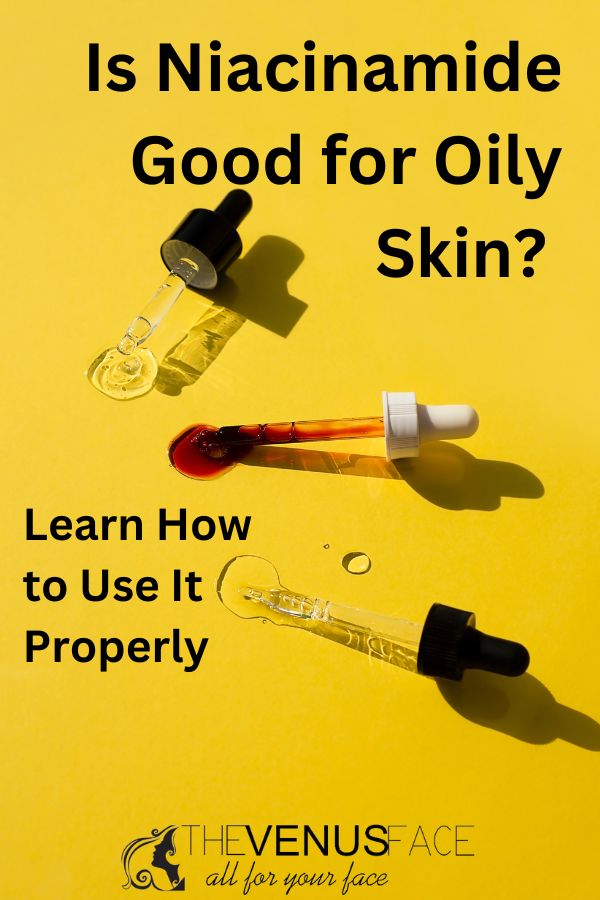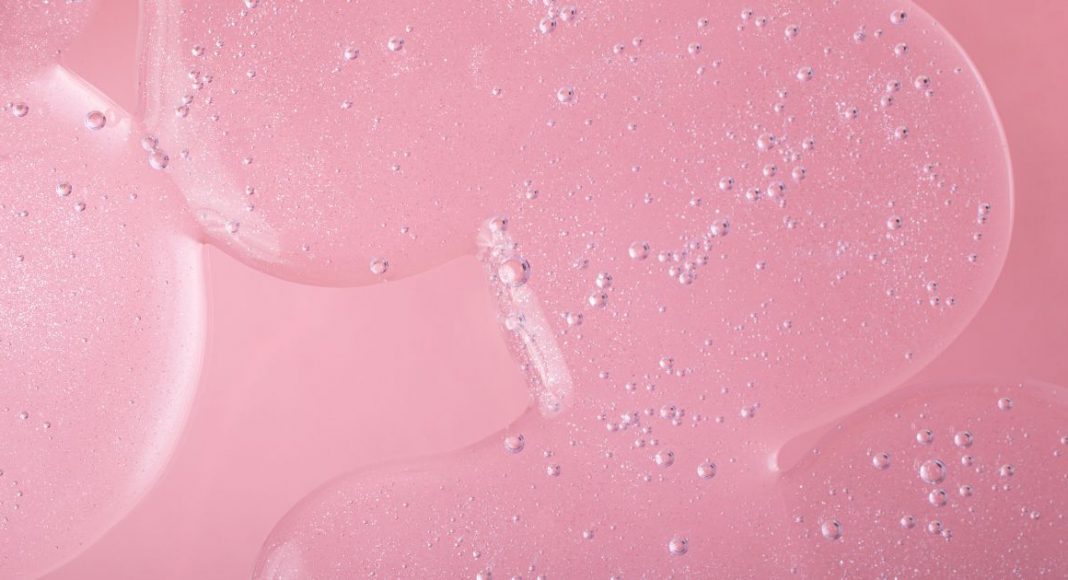Is Niacinamide good for oily skin? Read on!
Niacinamide is a form of vitamin B3 that is often used topically to treat skin conditions such as acne, rosacea, and psoriasis. Niacinamide can also be found in over-the-counter skin care products, such as moisturizers, serums, and sunscreens. When applied to the skin, niacinamide works by reducing inflammation and redness, improving skin barrier function, and increasing moisture levels. Niacinamide is an effective treatment for a variety of skin conditions, and it is generally safe for use on all skin types. With all these great benefits, however, is niacinamide good for oily skin?

As an Amazon Associate, I earn from qualifying purchases.
Does niacinamide help oily skin?
Yes, it does. Niacinamide can help to regulate sebum production, which is the main cause of oily skin. Niacinamide works by inhibiting the production of sebum, which partly helps to keep the skin matte and oil-free. Additionally, niacinamide can help to shrink the size of pores and control excess oil production. All these benefits make niacinamide an excellent choice for people with oily skin.
Best niacinamide serums for oily skin
Niacinamide benefits for skin
There are many benefits of niacinamide for the skin, especially for people with oily skin.
Pore minimizer
As said above, one of the benefits of niacinamide for people with oily skin is that it can help to shrink the size of pores. Niacinamide works by constricting the blood vessels in the skin, which helps to reduce inflammation and redness. Additionally, niacinamide can help to tighten the skin, giving it a more toned and youthful appearance.
Sebum regulator
Another benefit of niacinamide for people with oily skin is that it can help to regulate sebum production. Sebum is the natural oil produced by the skin, and too much sebum can lead to oily skin and breakouts. Niacinamide helps to regulate sebum production, which can help to keep the skin clear and prevent breakouts.
Anti-inflammatory
Niacinamide is also an anti-inflammatory, which can help to reduce redness and irritation. This makes niacinamide a good choice for people with sensitive skin or conditions like acne or rosacea.
Skin barrier
Niacinamide also helps to protect the skin barrier, which is the outermost layer of the skin. The skin barrier helps to keep moisture in and bacteria out, and a healthy skin barrier is essential for keeping the skin healthy. Niacinamide helps to protect the skin barrier and prevent it from becoming damaged or weakened by growing a ceramide (lipid) barrier.
Acne treating
Niacinamide can also help to treat acne. Niacinamide helps to kill the bacteria that cause acne, and it also helps to reduce inflammation. Additionally, niacinamide can help to unclog pores and prevent new breakouts from forming.
Collagen booster
Niacinamide also helps to boost collagen production. Collagen is a protein that helps to keep the skin firm and elastic, and as we age, our bodies produce less and less collagen. Niacinamide helps to stimulate collagen production, which can help to reduce the appearance of wrinkles and fine lines.
More: Reducing wrinkles and fines lines with microcurrent therapy
Brightening
Niacinamide can also help to brighten the skin. Niacinamide inhibits the transfer of melanosomes from keratinocytes to neighboring epithelial cells by up to 68%, which can help to lighten dark spots and even out the skin tone. Additionally, it can help to protect the skin from damage caused by the sun and other environmental factors.
How to use niacinamide for oily skin
There is a pure form of niacinamide and there are products that have a combination of niacinamide and other ingredients. However, it is recommended not to use the pure form. Instead, use a product that has niacinamide as one of its main ingredients.
The most effective way to use niacinamide is to apply serums that contain this ingredient. There are niacinamide moisturizers but they are not as effective as serums.
Final thought
Is Niacinamide good for oily skin? Yes! Niacinamide is an excellent ingredient for people with oily skin. It can help to regulate sebum production, shrink the size of pores, and even out the skin tone. Additionally, niacinamide can help to treat acne and boost collagen production. Look for products that contain niacinamide as one of their main ingredients, and apply them to your face once or twice a day. Although this form of vitamin B3 is considered safe to use for the skin, it’s always best to do a patch test on a small area of your skin first to make sure you’re not allergic to it.
F.A.Q
Does niacinamide make your skin purge?
No, it doesn’t. There are no studies or experiments that show that niacinamide can make your skin purge.
Should I apply niacinamide on damp skin?
It’s fine to apply on both damp and dry skin. However, it is recommended to apply it on damp skin to make it penetrate better.
Does niacinamide make skin sensitive to the sun?
No, it doesn’t. Niacinamide can actually help to protect the skin from damage caused by the sun.
More:





